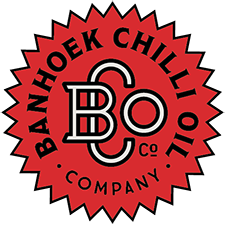At the Banhoek Chilli Oil Company, we believe in transparency and quality, which is why we’re addressing some common myths about canola oil.
Let's set the record straight with some facts:
Myth 1: Canola Oil Is Unhealthy

Canola is completely healthy and safe, according to FSANZ (Food safety, Australia and New Zealand) the FDA (United States Food and Drug Administration), Health Canada, the OECD (The Organisation for Economic Cooperation and Development) and EFSA (European Food Safety Authority). Canola has the lowest saturated fat content, high in cholesterol-lowering mono-unsaturated fats and the best source of omega-3 fats of all oils.
Canola oil is of such a superior nature that CANSA has recognised the product as a ‘Smart Choice’ because it contains up to 12% omega-3 fatty acids, an excellent omega-6 to omega-3 fatty acid ratio of 2 to 1 and can reduce the production of molecules and substances linked to inflammation.”
Myth 2: Canola Oil is Genetically Modified
The Facts: In a time where GMO food products raise controversy among the public, it’s reassuring to know that ALL the canola crops in South Africa are grown from non-GMO seeds.
Pressed canola oil and seeds in South Africa consistently undergo GMO screening for verification purposes in adherence to requirements.
Southern Oil, our canola oil supplier, declares on the product labels that the oil produced is regarded as GMO free, therefore will not contain GMO associated with DNA sequence in accordance with the regulations.
Regulation 146 of the Foodstuffs, Cosmetics and Disinfectants Act, 1972 (Act 54), Regulation 25 of 2004 and section 24(6) of the Consumer Protection Act and Regulation 7.
Myth 3: Canola Oil is Highly Refined

Cold pressed oils are subjected to a different processing technique compared to refined oils. However, there is no difference in their fatty acid profiles so whichever you use, you are likely to get the cardiovascular benefit.
The refining process is merely to remove any odours and impurities such as, free fatty acids and phospholipids, mucilaginous gums, colour pigments and fine meal particles. The only major nutritional difference evident from the two different techniques is that during the refining process; some of the vitamin E content is removed.
Myth 4: Canola Oil Contains Harmful Chemicals
The Facts: The canola oil we use is free from harmful chemicals. It undergoes rigorous testing to ensure it meets high safety and quality standards fit for small batch production.
Myth 5: Canola Oil is Bad for Cooking

Canola oil can be used for cooking at high temperatures as it has a high smoking point (the point at which an oil is heated too much and produces an unpleasant smell and taste as well as compromising nutritional quality).
Oils that have a low smoking point are for example olive oil and hence these should be used preferably in foods that require cooking at low temperatures or in foods that can be eaten cold (salad dressings).
Why we chose Canola Oil?
At the Banhoek Chilli Oil Company, we prioritize both taste and health. Our canola oil is sourced from trusted local farmers who share our values of sustainability and quality. This not only supports the local economy but also ensures that we deliver a product that you can trust and always enjoy the perfect bite of flavour.
Join Us on Our Journey
We invite you to experience the difference that high-quality canola oil makes in our chilli oil. Explore our product range and discover new Recipes that highlight the versatility and benefits of Banhoek Chilli Oil, or come experience it for yourself at our Taste Kitchen in Stellenbosch.
For more information and to shop our products, visit Banhoek Chilli Oil to buy direct or find a store nearest you.






